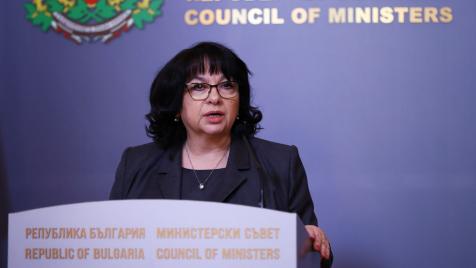More foreign workers in Bulgaria: Where do they come from and in which sectors do they work?
Over 108,000 people from non-EU countries have entered the labor market in the last six years

© ECONOMIC.BG / Depositphotos
Over the past six years, Bulgaria has attracted over 108,000 foreign workers from countries outside the EU, according to data from the Ministry of Labor and Social Policy for the period 2019-2024. They come from 65 different countries, and their number is growing with each passing year - a trend that confirms the deepening problem of staff shortages.
At the same time, the country is becoming increasingly less associated with the image of a destination for cheap labor.
The data presented is in response to a request from former Social Minister Denitsa Sacheva (GERB-SDS) to the current Social Minister Borislav Gutsanov.
According to the data, workers from third countries are concentrated in several main sectors of the Bulgarian economy: hotels and restaurants, construction, manufacturing, ICT technologies and transport.
Nationalities and sectors
The top seven countries sending workers to Bulgaria are:
- Uzbekistan (10,514 people): Seasonal and construction workers, as well as workers in the manufacturing industry;
- Turkey (10,441 people): Seconded specialists, engineering and technical and middle-technical personnel, mainly in construction, as well as seasonal workers;
- Kyrgyzstan (7,138 people): Seasonal workers and workers in the manufacturing industry;
- Nepal (4,522 people): Low-skilled workers in manufacturing and seasonal workers in agriculture and the hospitality sector;
- India (3,155 people): Workers in manufacturing, transport and IT sectors;
- Russian Federation (3,118 people): Technical and engineering personnel, IT specialists and others;
- Ukraine (1,923 people): Mostly seasonal workers, engineering, technical and construction workers.
The data shows a steady increase in the number of foreign workers, especially those holding Single Residence and Work Permits. In 2019, 1,129 such permits were issued, while in 2024 their number jumped to 13,131.
There has also been a clear jump in the number of Blue Cards – from 370 in 2019 to 1,101 six years later. However, this is still far from the optimistic expectations of a boom in the use of this type of work permit, which is used to attract highly qualified employees from outside the EU. Although the procedures for issuing the Blue Cards have been simplified, this has not had the intended effect.
Translated by Tzvetozar Vincent Iolov

 Economic.bg
Economic.bg 


